April 23, 2025 | 04:17 GMT +7
April 23, 2025 | 04:17 GMT +7
Hotline: 0913.378.918
April 23, 2025 | 04:17 GMT +7
Hotline: 0913.378.918
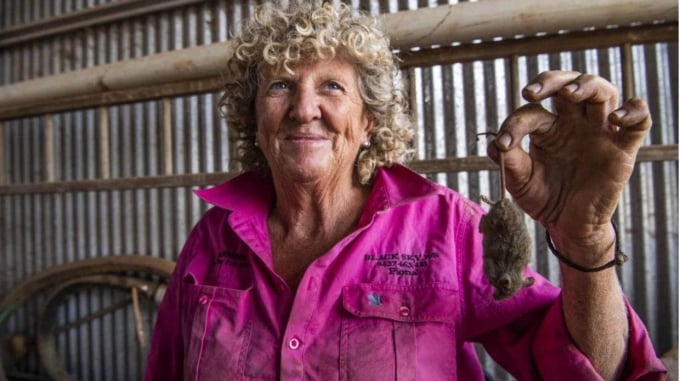
Grain farmer Fiona Adams from Wellington in NSWâs Central West holds a mouse that her dog killed. Photo: Sydney Morning Herald.
When the cats have given up chasing mice and the dogs are at risk of dying from eating rodent poison, farmers across inland Australia have had no choice but to improvise to cope with the massive mouse plague.
For Eris Fleming, an artist who also runs cattle at his family’s farm near Bakers Swamp in the NSW Central West, the creative approach has been to create mini water traps – 15 of them – all around his house.
Fleming, 78, had seen the like of the current masses of mice once before, in 1984.
At first, though, he tried laying poison as did his neighbours but his German shepherd dog “started eating the bait faster than the mice”.
His dog began haemorrhaging and needed urgent and costly care to be kept alive, joining a line at the local veterinary clinic. “The vets would have been been making a fortune in this little while,” he said.
The mice that did eat poison ended up decaying in the ceiling, within the walls and under the floor boards. “The stench was just unbelievable,” Fleming said.
And so, out came the buckets of water, narrow curtain rails coated in PVC plastic and a sheen of canola oil, and some peanut butter lures, all designed to trap and drown the relentless rodents.
And so, each morning, Fleming would begin the grim ritual of collecting dead mice by the bucketful, easily 300 of them a day. Then they would be buried well away from the house.
It would take him three hours a day, every day, to clear the buckets, dig and bury the mice and to reset the traps.
Still, it was time saved from having to clear off every surface, such as desks and tables, of mouse droppings, and to chase the rodents away from their beds and even out of their fridge.
Even so, “you get so sick of carrying them out”, he said.
Some of his neighbours followed his methods, and they all report a big drop-off in the multitudes of mice.
Fleming now counts only a handful or so of dead mice each morning although the dramatic and welcome decline probably has more to do with the plague moving on to find food elsewhere, such as closer to Sydney.
Other techniques used by those in his district include one woman who swears by the mixing of flour with plaster of Paris, although that approach still runs the risk of mice decaying in hard-to-reach nooks.
Elsewhere, traps that use expandable rubber latex rings – much like those used to castrate livestock – are a favoured approach.
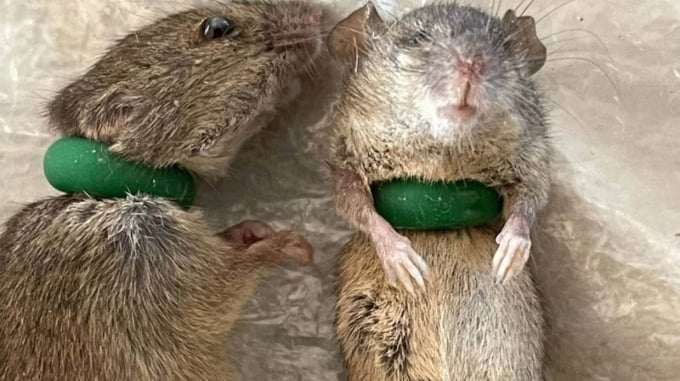
Rubber rings are another favoured method of trapping the mice, as on a farm near Inverell in northern NSW. Photo: Sydney Morning Herald.
The resort to improvisation will probably remain a necessary approach since supplies of poisons and traps remain strained. Hardware retailer Bunnings said demand began picking up last December and accelerated further after April.
“We have experienced an increase in customer demand for mice control products across New South Wales,” Belinda Rakers, manager of Bunnings’ garden category products, said.
“Due to the demand, stock is currently low. However, we are continuing to work closely with our suppliers to get more stock in stores as soon as possible.”
Out at Neurea, near Wellington, Fiona Adams is using baits to keep mice numbers at least partly under control but her grain shed still rattles with them at night.
Her kelpie Sam kills one even as she speaks to visitors from the Herald to her farm on Thursday.
“I certainly don’t like them, but you just get used to them, unfortunately,” Adams said. “They have cute little faces, but they’re smelly little s***s. “Driving along the road at night they’re like dodgems,” she said.
While the cold weather has started to slow them down, it didn’t stop them from eating all the lupin seeds she had sown on Wednesday, leaving behind just empty husks.
For Fleming, the scale of the plague is hard for many in Sydney and elsewhere to imagine.
Mice can be fertile at just six weeks and then have litters within three-week spells, triggering the population boom.
Farmers in the region who had sold their livestock and couldn’t afford to buy back into the market had turned to hay produce to make use of the bumper rains only to find entire haystacks eaten by mice within months.
“If another drought comes along, they’ll be legless again,” Fleming said.
Ultimately it is going to come down to science rather than makeshift or other methods to control such population explosions.
“The only way you can prevent this is by research,” he said.
Stuff
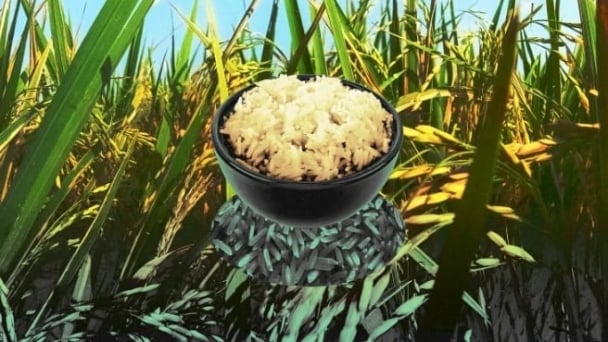
(VAN) Warmer temperatures and more carbon dioxide will boost levels of arsenic, a dangerous heavy metal, according to new research.
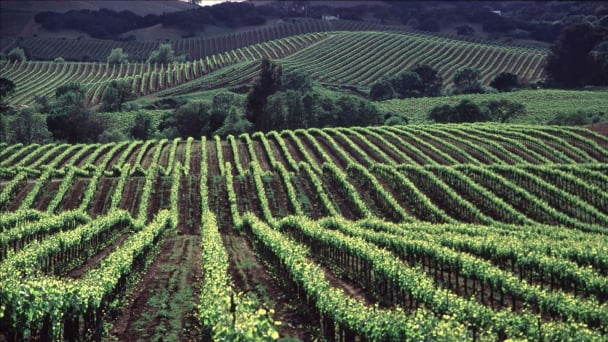
(VAN) California's $59 billion agriculture industry faces serious disruption as the U.S. clashes with China - one of the state's major export markets.
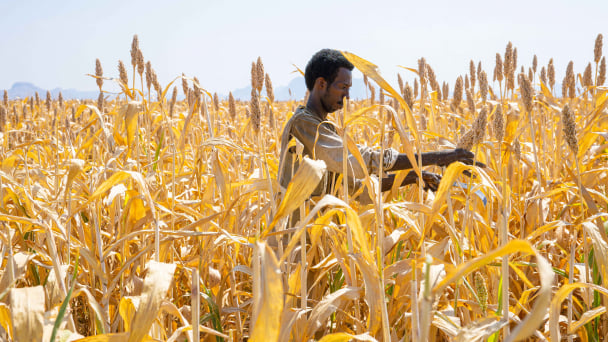
(VAN) Five things you should know about Sudan's food security crisis.

(VAN) 169 lotus seeds selected by the Vietnam Academy of Agricultural Sciences were carried into space by Vietnamese-American astronaut Amanda Nguyen.
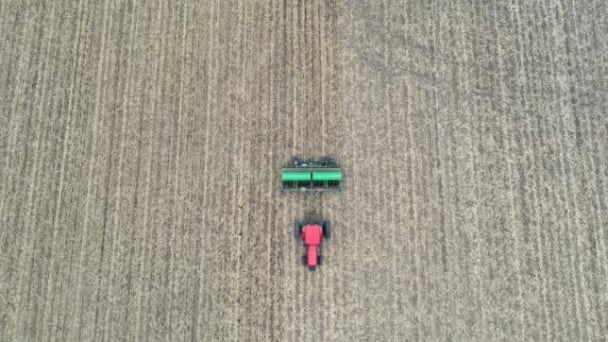
(VAN) Tariffs are making life more expensive for John Pihl. He's been farming in Northern Illinois for more than 50 years.

(VAN) European and American farmer organisations are concerned about the import tariffs that the United States introduced on 9 April for products from the European Union. This makes them 20% more expensive.

(VAN) Global poultry trade is expected to remain strong amid relatively tight global protein supply and growing consumption, RaboResearch concludes in its latest animal protein report.